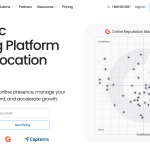In the ever-evolving landscape of digital marketing, staying ahead of the curve is essential for businesses striving to maintain a strong online presence. Search Engine Optimization (SEO) remains a cornerstone of successful digital marketing strategies, and one approach gaining prominence is the use of topic clusters. Let’s delve into the power of topic clusters and how they can revolutionize your SEO content planning.
Understanding Topic Clusters
Traditional SEO strategies often focus on targeting individual keywords to rank for specific search queries. While this approach can yield results, it overlooks the interconnected nature of content on the web. Topic clusters, on the other hand, take a more holistic approach by organizing content around broad topics and related subtopics.
At the center of a topic cluster is a pillar page, which serves as a comprehensive resource covering the main topic. Supporting the pillar page are multiple content pieces, known as cluster content, each addressing a specific aspect or subtopic related to the main theme. By linking cluster content back to the pillar page and vice versa, you create a network of interlinked content that signals authority to search engines and enhances the overall visibility of your website.
Benefits of Topic Clusters
- Improved Search Visibility: Topic clusters enable you to target a broader range of relevant keywords and topics, increasing your website’s visibility across various search queries.
- Enhanced User Experience: By organizing content around topics of interest to your audience, you provide a more coherent and user-friendly browsing experience, leading to higher engagement and retention rates.
- Authority Building: As search engines recognize the interconnectedness of your content through topic clusters, they perceive your website as an authoritative source within your niche, leading to higher rankings and more organic traffic.
- Scalability: Topic clusters offer a scalable framework for content planning and creation, allowing you to expand your content library systematically over time while maintaining a cohesive structure.
Implementing Topic Clusters
Effective implementation of topic clusters requires careful planning and execution. Here’s a step-by-step guide to getting started:
1. Topic Identification
Identify core topics relevant to your business or industry that align with your target audience’s interests and search intent. These topics will serve as the pillars of your topic clusters.
2. Keyword Research
Conduct thorough keyword research to identify relevant keywords and search queries related to each core topic. These keywords will inform the creation of cluster content and help optimize your pillar pages for search visibility.
3. Content Creation
Develop high-quality content pieces for each subtopic within your topic clusters. Ensure that each piece provides valuable insights and addresses the specific needs and questions of your target audience.
4. Interlinking
Establish clear and strategic interlinking between your pillar pages and cluster content. Use anchor text that reflects the topic of the linked page to enhance relevance and SEO value.
5. Monitoring and Optimization
Regularly monitor the performance of your topic clusters using analytics tools to track rankings, traffic, and engagement metrics. Based on insights gathered, refine and optimize your content strategy as needed to maximize results.
The Role of Link Building Specialists
In the realm of SEO, link building plays a vital role in enhancing website authority and improving search rankings. A link building specialist possesses the expertise and resources to execute targeted link building strategies that complement your topic cluster approach. By acquiring high-quality backlinks from authoritative websites within your industry, a link building specialist can further amplify the impact of your content and boost your website’s visibility in search results.
Conclusion
Topic clusters offer a strategic and effective approach to SEO content planning, allowing businesses to establish authority, enhance user experience, and improve search visibility. By organizing content around interconnected topics and leveraging internal linking, businesses can create a cohesive content ecosystem that resonates with their target audience and drives organic traffic. Coupled with the expertise of a link building specialist, topic clusters can elevate your SEO efforts to new heights and position your website for long-term success in the digital landscape.
Lynn Martelli is an editor at Readability. She received her MFA in Creative Writing from Antioch University and has worked as an editor for over 10 years. Lynn has edited a wide variety of books, including fiction, non-fiction, memoirs, and more. In her free time, Lynn enjoys reading, writing, and spending time with her family and friends.















